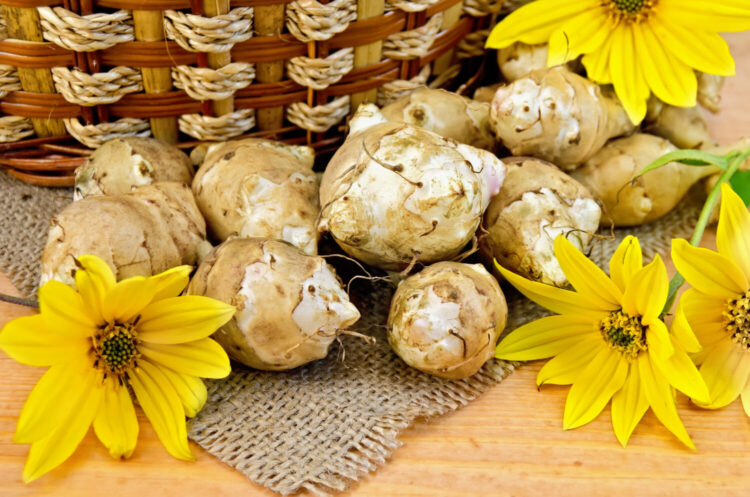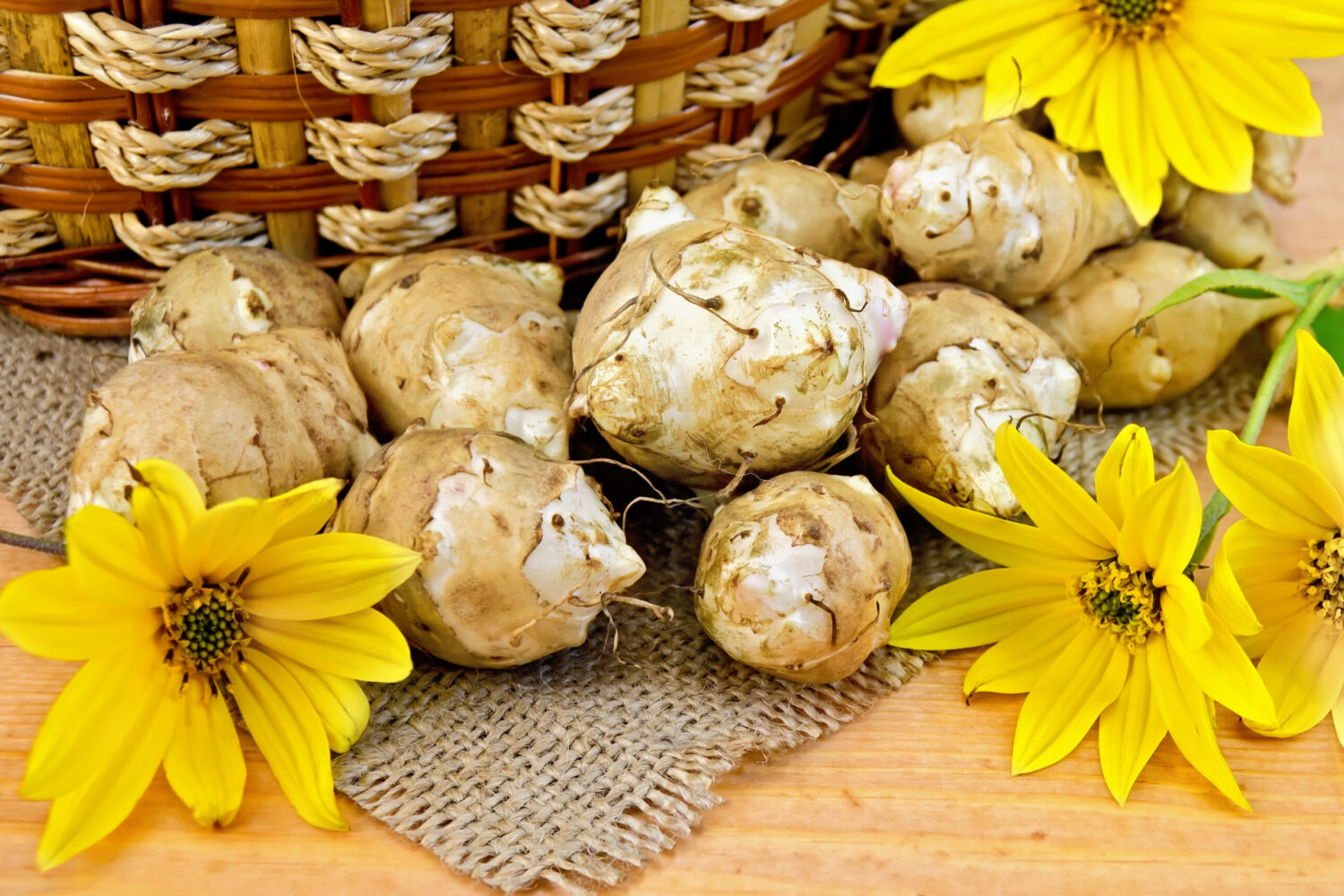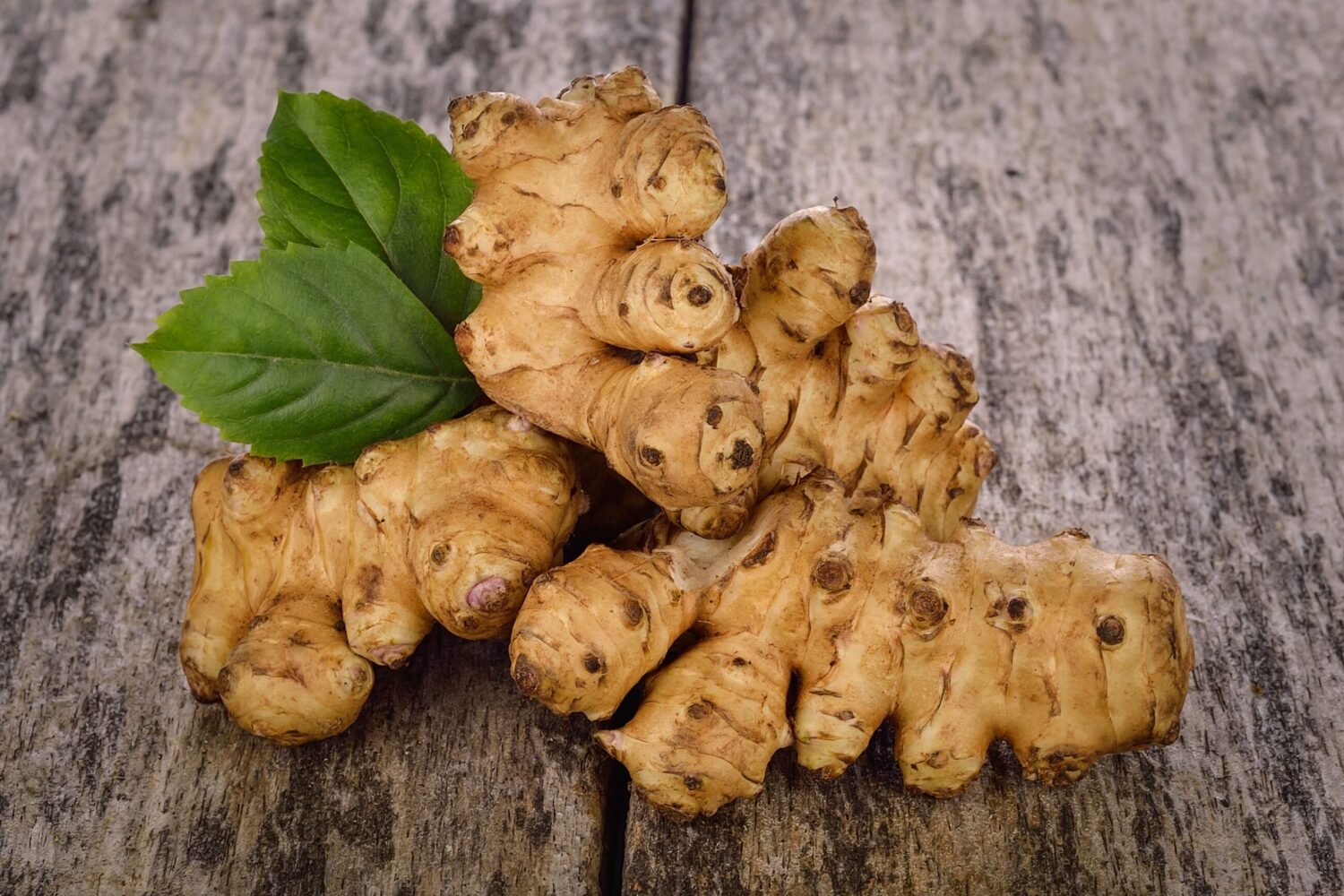
The main components and nutrients of the Jerusalem Artichokes
In recent years, Jerusalem artichoke has been attracting attention as a healthy food. In the past, various foods have been said to be good for health, but not all of them were effective in supporting health. However, when we look at the components and nutrients of Jerusalem artichoke, we can see that it contains essential nutrients that are indispensable for modern people. This time, we would like to explain the components and main nutrients of Jerusalem artichokes.
What kinds of components are found in Jerusalem Artichokes
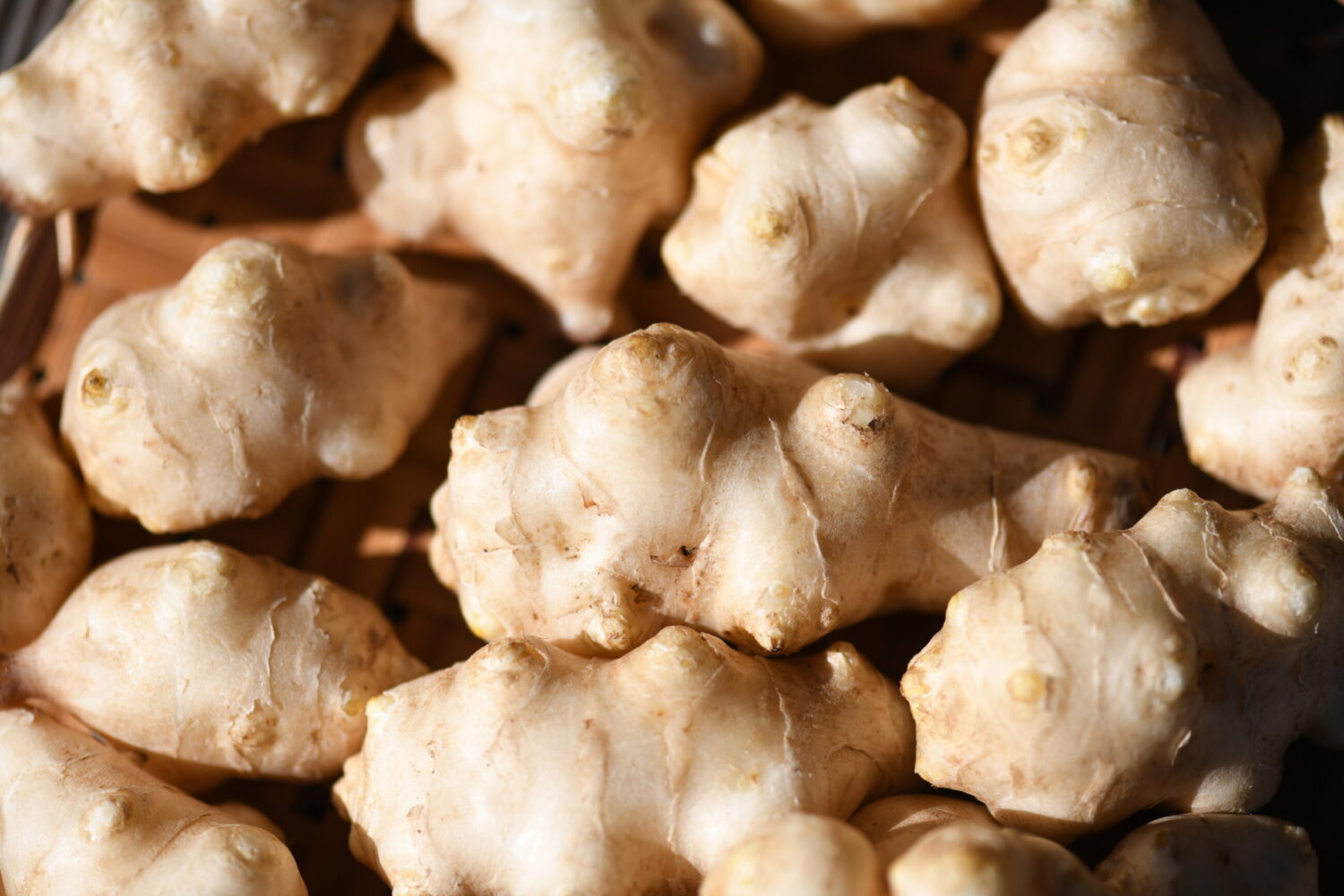
Let’s take a look at the components of Jerusalem artichoke. Dry powdered Jerusalem artichoke contains about 60% or less inulin, with the remaining components consisting of other dietary fibers, sucrose, protein, fructose, fat, and water. It is said that Jerusalem artichoke contains the largest amount of inulin in its powdered form with almost 60% inulin. This is the main reason why the Jerusalem artichoke has attracted attention. Even onions and burdock, which are also said to contain a lot of inulin, contain only a few percent, which shows how much higher the inulin content of Jerusalem artichoke is.
Another reason why Jerusalem artichoke is popular is because it contains a low amount of carbohydrates. While vegetables such as potatoes and onions are rich in dietary fiber, they also contain a high amount of starch, which inevitably leads to the intake of carbohydrates. Therefore, for those who are concerned about postprandial hyperglycemia or their body, these vegetables may not be the most ideal. Jerusalem artichoke can be eaten without worrying too much about sugar intake, making it a very useful ingredient for those who are health conscious.
The amazing benefits found in Jerusalem Artichokes
Are you familiar with the word “inulin”? It may not be a common term. Inulin is a type of water-soluble dietary fiber and a major component of Jerusalem artichoke. Some of the benefits of inulin include:
- It forms a gel in the body which helps moderate the absorption of carbohydrates.
- It is not absorbed in the intestines
- It is metabolized by bacteria in the intestines
As modern humans, we tend to consume more sugar and fat, so we need to take some measures to prevent that. It is great to know that taking inulin before or with a meal can help to slow down the absorption of carbohydrates. Inulin, which is abundant in Jerusalem artichoke, can become a gel in the intestine and slowly wrap around carbohydrates, preventing a rapid rise in postprandial blood glucose levels. In addition, despite being a polysaccharide, inulin is hardly absorbed in the intestine. This means that Jerusalem artichoke itself can be considered a healthy food.
The main nutrients in Jerusalem Artichokes
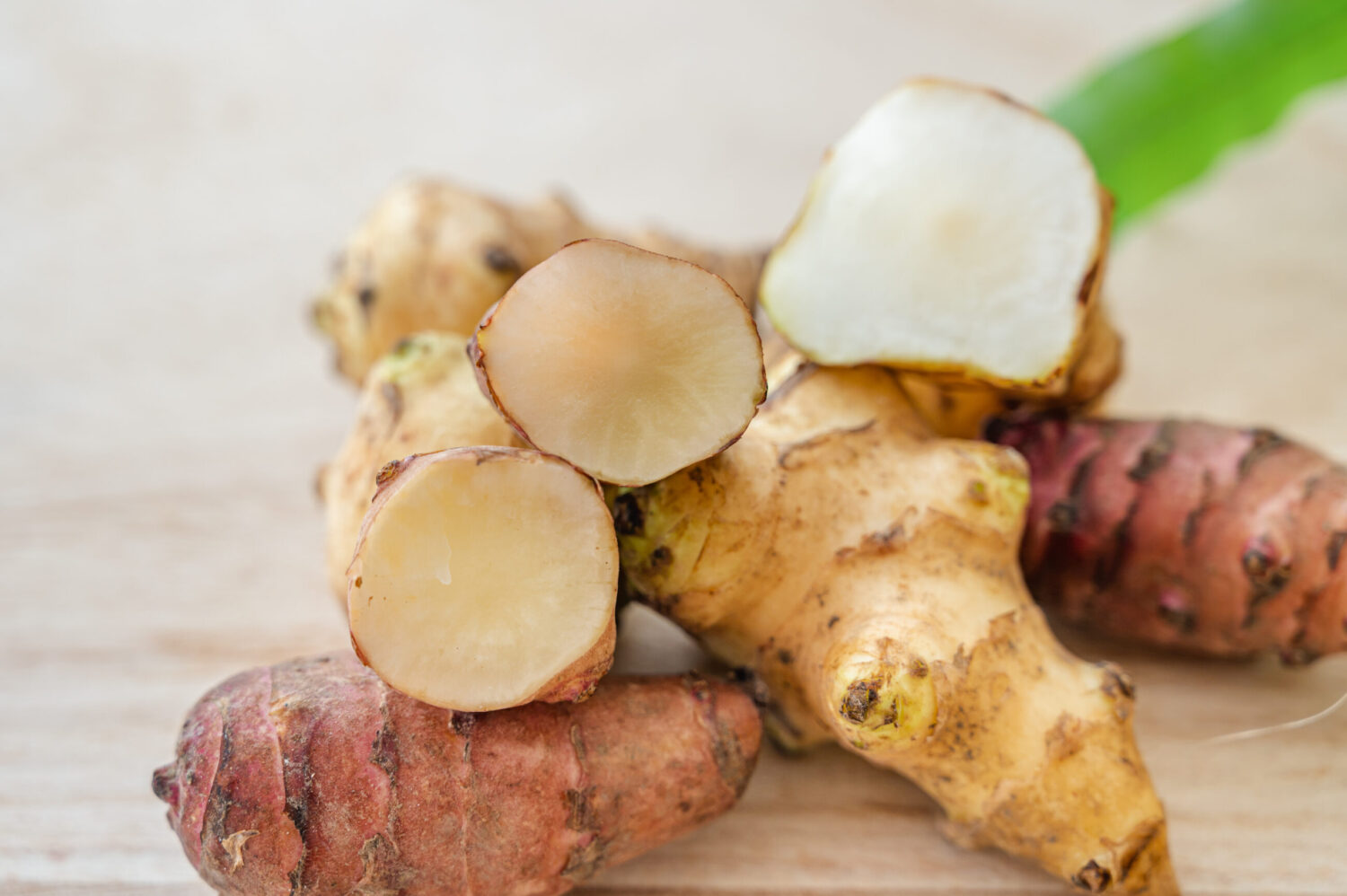
Jerusalem artichokes are gaining attention not only because it is rich in inulin, but also because it contains numerous nutrients that we need. It includes representative nutrients such as vitamins, minerals, and phytochemicals such as polyphenols. Let’s take a look at each kind as we explain their nutrients.
Vitamin C
Vitamin C is said to be deeply related to our health, and it is essential to live a lively life every day. Especially for people today, who are said to have high stress living styles due to alcohol and smoking, and irregular eating habits, the necessary amount of vitamin C is high.
Since Jerusalem artichoke is rich in vitamin C, it can be said to be a highly useful health food. In addition, vitamin C can also be expected to benefit beauty, so if you are concerned about your beauty, be sure to eat Jerusalem artichoke and actively consume vitamin C.
Vitamin E
Vitamin E is also an essential nutrient for our health. Vitamin E is often said to be good for beauty and is very appreciated by women who are conscious about their appearance. In addition, it is a nutrient that is often lacking in our daily diet, so in addition to Jerusalem artichokes, it is recommended to supplement it with foods such as avocados and nuts.
Vitamin B
Vitamin B is an essential nutrient for us to live a lively life. Jerusalem artichokes contain vitamins B1, B2, and B6, so it is recommended to incorporate them into your daily life. Those who like carbohydrates should aim to consume vitamin B1, and those who prefer fatty or meaty foods should aim to consume vitamin B2 daily. By adding Jerusalem artichokes to your daily diet, the balance of vitamins in your body can be maintained, so it may be worth it to incorporate it into your diet.
Minerals
In addition to being rich in inulin and vitamins, Jerusalem artichokes also contain various minerals such as calcium, potassium, magnesium, and zinc, all of which are essential for maintaining good health. Calcium supports strong bones, while potassium helps to balance the body’s electrolytes. Zinc provides strong support for the body’s immune system. Since it can be easy to fall short on minerals without realization, Jerusalem artichokes offer a well-balanced mix of minerals and are an excellent food source.
Phytochemicals
Sometimes when you cut a Jerusalem artichoke, you may find a red part, which is the same color as the polyphenols found in wine. Jerusalem artichokes are rich in polyphenols, a type of phytochemical, making them a great ingredient for those who are conscious of their beauty and health. In addition to polyphenols, Jerusalem artichokes also contain flavonoids, making them a food rich in phytochemicals which are chemical substances found in plants that are said to be very important for health. Since phytochemicals are often lacking unless you eat lots of vegetables and fruits, try making a salad with Jerusalem artichokes and combining them with other vegetables to supplement your nutrient intake.
Nutritious Jerusalem Artichoke
So far, I have explained the nutrients contained in Jerusalem artichoke. Although it may not be a familiar ingredient, it is very nutritious. Jerusalem artichoke may look plain, but it contains various ingredients and nutrients such as inulin, vitamins, minerals, and phytochemicals. Therefore, it is recommended to incorporate Jerusalem artichoke into your daily diet. Since Jerusalem artichoke is not always sold at supermarkets, one option is to take it as a supplement. We are sharing the recommendation below. Please check details on Amazon!
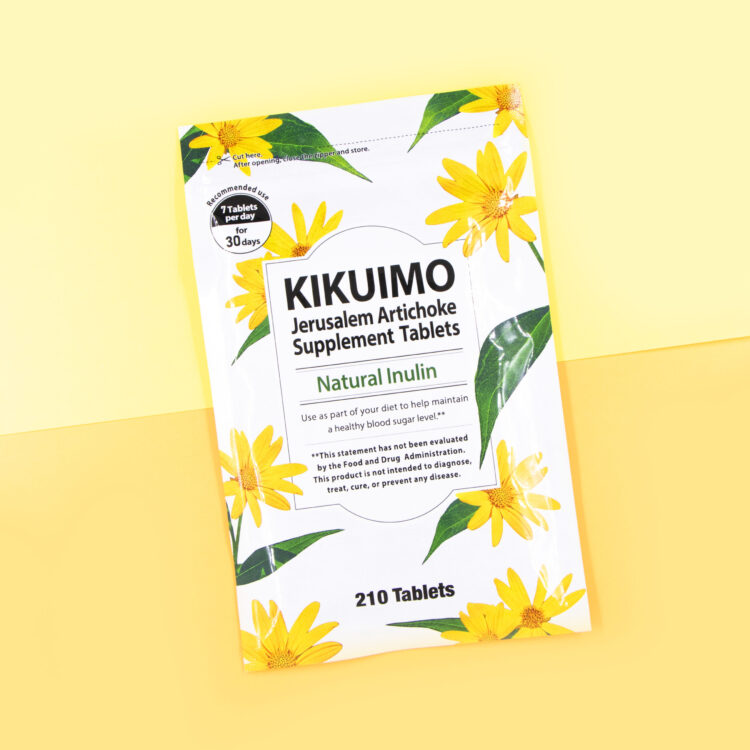
KIKUIMO Jerusalem Artichoke Supplement is a supplement made of organic Japanese Jerusalem artichoke. Daily intake contains 750mg of Inulin.
Jerusalem artichoke used for this supplement is organic and 100% made in Japan.


